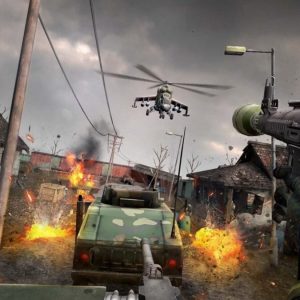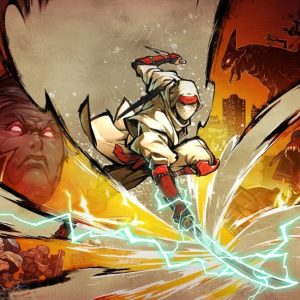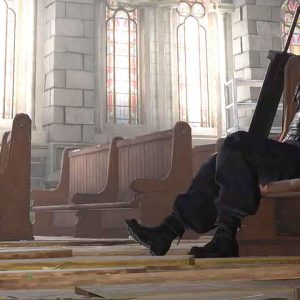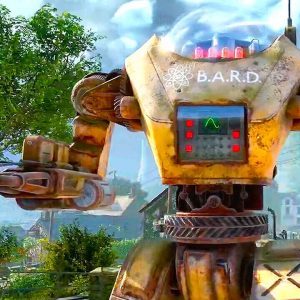When The Texas Chain Saw Massacre (TCM) released in 1974, it was years before the slasher genre took hold of the horror world for decades. But by the time its sequels started to pour in beginning 12 years later, it was after horror buffs had met the likes of Michael Myers, Jason Voorhees, and Freddy Krueger. In that new world, the marketing folks behind TCM needed a monstrous mascot to lean into, and thus Leatherface was elevated from one (admittedly standout) member of a vile family of killers to its centerpiece, eventually even garnering a prequel movie simply titled Leatherface.
Every modern take on the franchise since the underrated 2003 reboot has focused on the Ed Gein-inspired villain, often excluding any inclusion of his family at all. But Gun Interactive and Sumo Nottingham’s upcoming video game is based on that original movie, so it can’t just be a Leatherface game. It has to be a game about the Slaughter family. After a few hours with the game during the weekend’s tech test, it seems they understood the assignment.
Anecdotally, it seems the desire to be the powerful slasher at the heart of the franchise is a problem a lot of asymmetrical horror multiplayer games must account for. In Friday the 13th, players often preferred being Jason, while Dead By Daylight seems to have similar issues with players exclusively queuing as some of the many killers on its roster, rather than their potential victims. In TCM’s unique 4v3 setup, players may prefer being the killers over the survivors–time will tell–but within that team of killers, one might expect players to demand to play as Leatherface himself given the spotlight he’s enjoyed over the last 40+ years. Perhaps in the early days or weeks after launch, that will hold true. But in my experience, Leatherface’s family members, the Cook and the Hitchhiker, are just as viable as the big man–in fact, I may even prefer one of them.
The key to elevating these other villains to Leatherface’s level lies in their abilities. Success comes from organized team play, as each villain–and survivor on the ominously named team of “Victims”–has their own unique skills. Leatherface is a brute, so he can destroy certain shortcuts and close off exit strategies, but there are plenty of spaces he can’t make it to. In those cases, the Hitchhiker is key, as the gangly killer can slip through cracks in the wall just like survivors can. He can also set traps, plus he’s the fastest of the three, as he’s both younger than the Cook and smaller than Leatherface.
The Cook, to his credit, is maybe my favorite character right now for when I’m playing as the family. He’s a bit slower, but he has an incredible skill that can ping survivors when they’re making noise. He can do this from some distance away, too, giving him sort of a portable, more frequently available version of the immobile NPC grandpa, who can periodically cast a sonar-like ability when he’s fed enough blood during a match.
I played a ton as Leatherface this weekend, as the game’s tech test lacked some launch features such as character selection, and for whatever reason I landed on the big guy a lot. But right now, I actually prefer playing as the Cook. He feels like a support character you’d find in a more traditional, less horrific multiplayer game. I was able to provide a lot of value to my team without necessarily getting my hands dirty. In one example, I had cornered a sole survivor in a space where I could guard both exits, periodically pinging them until Leatherface showed up to help me catch them for good. It wasn’t until the tech test ended that I looked back and reflected on just how much the team of Leatherface, Hitchhiker, and Cook play like something akin to Overwatch’s tank, DPS, and support, respectively.

There’s still plenty of appeal to being Leatherface too, of course. The most obvious is the fact that you get the only chainsaw on the map, and revving it is sure to send shivers down the spines of all who are desperate to escape. But the game would be dead on arrival if its other monstrous characters were just space-fillers–side attractions to the series’ modern-day mascot. Thankfully, the family’s synergistic abilities give the game a vital layer of strategy that is required in this genre–even if, in the original movie, the family was more or less a trio of sadistic improvisers whose only guiding light was causing mayhem.
It’s these ways in which TCM is molded into a modern multiplayer game that can seem so starkly odd, but also so necessary and, ultimately, beneficial. The original movie feels gritty and raw and unapologetic. It’s an undeniable classic, but it still unnerves me when I watch it because of its intentional grime and unflinching terror. It feels quintessentially uncommercial, to the extent that a video game, polished and aesthetically appealing, almost feels betraying. The game does well to capture the movie’s sludgy feeling, too, it’s just that the medium demands gamified aspects like ability cooldowns and UI elements, making it all such a strange but well-reasoned juxtaposition of the IP and PvP.
I’m still getting used to that part of it, but I find that if you’re going to unavoidably reimagine the movie’s iconic landmarks into “maps” and its villains into archetypal multiplayer “heroes,” for lack of a better word, you may as well get it right. I’m reserving my full judgment on The Texas Chain Saw Massacre for its launch on August 18, but after several hours, I’ve found a lot to appreciate here, both as a fan of the unforgettable movie and someone looking for a new asymmetrical horror game to take over my life.
The products discussed here were independently chosen by our editors.
GameSpot may get a share of the revenue if you buy anything featured on our site.
























